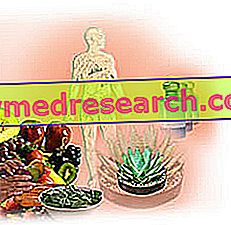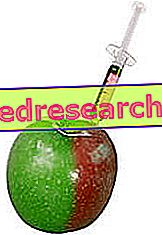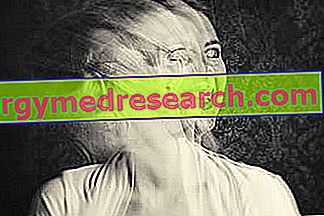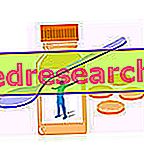Introduction
The curtain of "alternative medicine" sees many natural practices as protagonists; in this article some of the new medicines, also known as "unconventional", will be studied in depth.

Alternative medicines
These modern practices include:
- aromatherapy
- Naturopathy
- Phytotherapy
- Ayurveda
- Flower Therapy
- Homeopathy
For some scholars it is inaccurate to talk about alternative medicine, especially referring to some of these practices; it would be more correct to call them " complementary" to conventional medicine of an allopathic nature ( contraria contrariis curantur, opposites are cured with opposites, so according to conventional medicine the disease must be treated with a therapeutic agent that contrasts it, be it a drug or a drug).
aromatherapy
Aromotherapy is a natural practice that involves the use of essential oils destined for massage, room fragrance or the aromatization of creams and plasters. This natural practice is not a medicine in itself, but helps the body to relax: it is used to combat insomnia, for example, because with the use of some plants with sedative action for the central nervous system, such as lavender, it is possible to promote a state of relaxation, without using synthetic substances.
Naturopathy
Naturopathy, known for about ten years in France and Germany, is an alternative discipline that combines herbal products with homeopathic ones, combining a correct lifestyle with a balanced diet, also using massages and yoga.
Phytotherapy
Phytotherapy is a complementary medicine to conventional medical science based on chemical drugs; specifically, phytotherapy studies the use of medicinal plants capable of causing a pharmacological activity in the human body. Phytotherapy refers to the same principles of conventional medicine to define the nature and treatment of pathologies, but using only remedies of plant origin.
It is particularly indicated in long-term therapies, such as osteoporosis, obesity and atherosclerosis, being a medicine well tolerated by the body and, if used in accordance with the rules recommended by the expert, almost devoid of risks and secondary effects. Recent studies have shown that herbal medicine, in combination with synthetic drugs, could enhance its effectiveness and reduce side effects: however, it is always necessary to pay close attention to the synergies between drugs and herbs (see the article "Phytotherapy: i risks of natural ").
Ayurveda
Alternative Indian medicine that lays the foundations of its effectiveness on practices of Indian lifestyles: in nature, according to this philosophy, there are three elements (earth, water and fire) and man is the set of them.
Flower Therapy
"The care of flowers" represents an unconventional discipline conceived around the thirties by an English physician who observes nature and the soul: Edward Bach introduced a new concept according to which man is part of nature and benefits from it. Starting from this concept comes the nature-personality association: in fact, Bach flowers represent the right tool to reunite man with nature; consequently, the disease is considered a detachment of man from nature.
For Bach, each flower corresponds to a personality: the flowers are generally macerated in the brandy, in order to transfer the energy of the flowers to the solution (elixir).
Homeopathy
Homeopathy is an alternative practice whose medications must be recommended by the doctor. This unconventional medicine places great importance on the patient's psychological situation. The common thread of homeopathy is summarized in the sentence: "The like treat themselves with the like". The meaning that derives from this is that a homeopathic substance can cure the patient if in a healthy subject it causes symptoms equal to those of the sick person. In this case one speaks precisely of drugs, despite the scientific concept of functional expression is clearly opposed to that of homeopathic products, consisting of infinitesimal doses of active ingredient. Homeopathics have a complex process and dilutions are prepared from the mother tincture. The infinitesimal doses are often indicated with "DH + N °" where N ° indicates the number of dilutions carried out.
Conclusions
To conclude, we can say that the terms "alternative" and "unconventional" attributed to these practices fit perfectly, given that these therapies often demonstrate a certain effectiveness, but the reason is not well understood: they are, therefore, highly criticized, since the underlying mechanism is not known in depth (except for phytotherapy, which we have seen to be attributable to official medicine as it is based on diagnostic parameters typical of Evidence Based Medicine ).
However, alternative medicines are recommended for people in good health, without serious illnesses; one must always pay close attention to possible interactions with herbal or pharmaceutical products.
Lifestyle habits represent the lowest common denominator of all alternative practices, a sign of health or a cause of illness.



